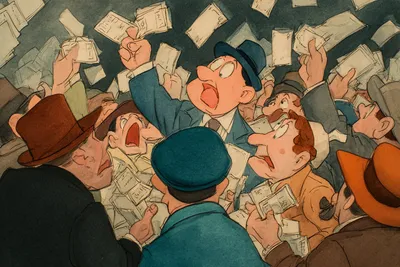
Why Do Concert Tickets Sell Out So Fast? (Bots & Secrets Explained)
If you’ve ever sat in front of your computer at 10:00 AM sharp, ready to buy tickets for your favorite artist, only to see “Sold Out” in seconds, you’re not alone. Concert tickets selling out instantly feels frustrating, unfair, and sometimes even suspicious.
So why does this happen? The truth is that it’s a mix of bots, presales, massive demand, and ticketing industry practices. Let’s break it down.
1. Bots Snatch Tickets Before Fans Can
One of the biggest reasons tickets vanish instantly is ticket bots. These automated programs are designed to:
- Log in faster than humans.
- Buy tickets in bulk.
- Resell them at higher prices on secondary markets.
According to studies, bots are responsible for 20%–30% of ticket sales on major events. This means by the time you click “Buy,” a bot may have already taken the best seats.
Tip: Always buy from official ticketing partners and use Verified Fan programs when available. They’re designed to filter out bots.
2. Presales Take a Huge Chunk of Tickets
When tickets “go on sale,” you might think the entire venue’s inventory is released. In reality, only a fraction is available.
Here’s where the rest usually goes:
- Fan club presales (artists reward loyal fans).
- Credit card presales (special offers for cardholders).
- Venue or promoter presales (local deals and industry insiders).
- Sponsor and partner holds.
By the time the public sale opens, sometimes less than half of the tickets remain.
3. Demand Often Outweighs Supply
Even if bots didn’t exist, some shows simply have more fans than seats. Think about:
- A 20,000-seat arena.
- Millions of fans worldwide.
- Thousands hitting “refresh” at the same time.
It’s basic math — high demand and limited supply mean most people will walk away empty-handed.
4. Ticketmaster’s Queue Isn’t Always Random
Ticketing platforms use virtual waiting rooms and “randomized queues.” But they’re not completely fair. Factors like:
- Internet speed.
- Browser caching.
- Number of devices logged in.
...can all affect your place in line. That’s why some people always seem to get lucky.
5. The Secondary Market Benefits
Scalpers and resale sites thrive on this system. Bots grab tickets, list them at inflated prices, and desperate fans pay. This cycle:
- Keeps resellers profitable.
- Drives more bots into the game.
- Makes real fans feel cheated.
Some countries have started regulating resale markups, but enforcement varies.
6. How to Improve Your Odds
While there’s no guaranteed way to beat the system, you can improve your chances:
- Sign up for Verified Fan presales and complete all steps early.
- Log in to your ticket account before the sale starts.
- Use multiple devices (phone, laptop, tablet).
- Have a credit card saved for instant checkout.
- Be flexible with seats — don’t just aim for front-row.
The Bottom Line
Concert tickets sell out so fast because of bots, presales, overwhelming demand, and industry practices. While it may feel unfair, knowing the system helps you play smarter.
Next time you’re trying for that dream show, prepare early, use presales, and increase your odds — because in today’s ticketing world, every second counts.
Related Questions
-
Why are resale tickets so expensive?
Because bots and scalpers control supply, driving prices up. -
Do artists know this happens?
Yes — and many are pushing for fan-first ticketing reforms. -
What’s the best way to avoid scams?
Stick to official sites and avoid shady resellers.